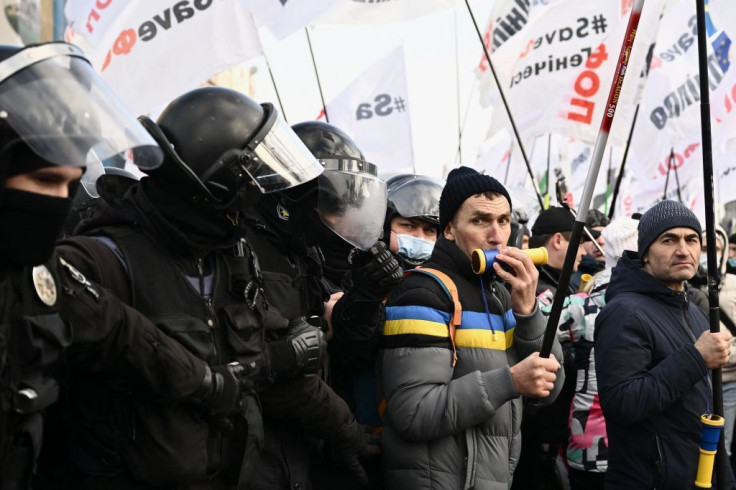Investors have been on edge ever since reports of a possible Russian invasion of Ukraine emerged.
After hopes that diplomacy might resolve the Ukraine crisis faded, global stocks fell and government debt prices shot up Friday, reported Reuters. Shelling increased in eastern Ukraine and a rebel leader announced an evacuation, which was seen as a surprise development in a conflict that the West suspects Russia will use to justify its invasion of Ukraine.
The Swiss franc rose and the dollar rebounded as the mood that had improved on news late Thursday soon darkened again. The fluctuation in mood happened when it emerged that US Secretary of State Antony Blinken would meet Russian Foreign Minister Sergei Lavrov soon. The euro against the franc dropped 0.19%, but the dollar index rose 0.301%.
How Russian invasion will affect its assets
Russian assets have been affected by fears that a military war would lead to sweeping new Western sanctions against the country, so the ruble went weak by 1.40% at 77.16 per dollar. All options were on the table regarding sanctions on Russia if it invades Ukraine, said Germany's foreign minister, Annalena Baerbock.
Rick Meckler, partner at Cherry Lane Investments, said last week that coming into the weekend with geopolitical concerns and "what's been a persistently weak market, a lot of people threw in the towel."
Europe
The STOXX 600 share index retreated from initial gains to close down 0.81% in Europe, with banking and travel shares leading the decline. Across the globe, MSCI's gauge of stocks shed 0.85%, which is down almost 7% this year.
Stocks
The news of invasion rattled investors, sending the Dow down 622 points, or 1.8%, Thursday. According to CNN, it was the worst day of 2022 for the index. The same day, S&P 500 dropped 2.1% and the Nasdaq fell 2.9%, which means that both indexes are in the red for the week.
Worst-case scenario
David Kelly, chief global strategist at JP Morgan Funds, said that after discounting a war, the worst-case scenario would be Russia occupying most of Ukraine and suffering severe economic consequences. This would ultimately slow the global economy. He said that you get a spike in inflation but the "Federal Reserve will probably see that kind of spike in energy prices associated with more uncertainty as ultimately disinflationary rather than inflationary." He added that as an investor, he wouldn't "get out of good long-term investments because of that."
Thomas Hayes, chairman and managing member of hedge fund Great Hill Capital LLC, said that as tensions rise, history shows that investors overestimate the downside impact. They also underestimate the possibility of a positive resolution. He said that in the worst-case scenario that Russia does invade Ukraine, "hypothetically as they took Crimea, a lot of the bad news is priced in and it would be 'sell the rumor, buy the news.'"
Oil prices hit $95 a barrel
On Wednesday, oil prices bounced back to $95 a barrel as US and the North Atlantic Treaty Organization (NATO) officials said that they see no sign of de-escalation on the ground in the Russia-Ukraine conflict. According to CNN, US crude jumped 3.2% within the day's peak of $95.01 a barrel.
Gold spikes to nine-month high
Amid fears of a Russian-Ukraine conflict, investors barreled into gold Thursday. It drove the price to $1,900.70, which is a level not seen since June of 2021. Upward momentum may continue, reported Fox Business. Edward Moya, senior market analyst at The Americas OANDA, said that gold has "key resistance around the $1920 to $1930 zone." But he added that if the safe haven bid "remains strong, bullish momentum could support a move towards the $1970 level."

© 2025 Latin Times. All rights reserved. Do not reproduce without permission.





